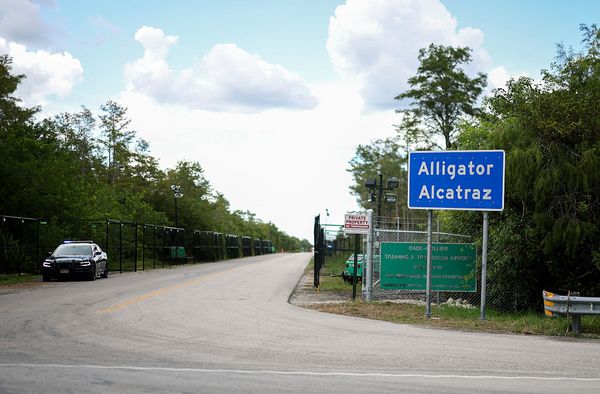
Doubts about Australia’s willingness to join forces with the US in a war against China are being cited by congressional researchers as a potential obstacle to the Aukus nuclear-powered submarine deal.
A new research paper looks at the US plan to sell Australia between three and five Virginia-class submarines in the 2030s but suggests the idea “could weaken deterrence of potential Chinese aggression”.
That stage of the deal aims to help Canberra bridge a “capability gap” before Australian-built nuclear-powered submarines begin to enter into service in the 2040s.
The paper, prepared by the Congressional Research Service, aims to provide members of the US congress with a neutral summary of key arguments likely to be raised by supporters and sceptics of the plan.
It lists six “potential arguments from sceptics”, including that the sale could weaken deterrence “if China were to find reason to believe, correctly or not, that Australia might use its Virginia-class boats less effectively than the US Navy would use them”.
That weakening of deterrence could also be the case if Beijing were to conclude “that Australia might not involve its military, including its Virginia-class boats, in US-China crises or conflicts that Australia viewed as not engaging important Australian interests”.
The report cited comments by the Australian defence minister, Richard Marles, in March that the Aukus deal did not include any pre-commitments to the US regarding involvement in a potential future conflict over Taiwan.
The report added: “Virginia-class boats are less certain to be used in a US-China conflict over Taiwan, or less certain to be used in such a conflict in the way that the United States might prefer, if they are sold to Australia rather than retained in US Navy service.”
In another argument that may embolden Republican critics of the submarine sale, the paper noted “the challenges that the US submarine industrial base is experiencing in achieving a desired construction rate of two Virginia-class boats per year”.
The ability of the US to build replacement submarines for Virginia-class boats sold to Australia was “uncertain”, according to the paper first reported by the Australian Financial Review.
The paper also suggested that the costs for Australia to acquire, operate and maintain Virginia-class submarines “could reduce, perhaps significantly, funding within Australia’s military budget for other Australian military capabilities” – especially if the figures “turn out to be higher than expected”.
“If this were to occur, there could be a net negative impact on Australia’s overall military capabilities for deterring potential Chinese aggression.”
The Australian government has repeatedly argued it will retain sovereign control of the submarines, despite arguments from the former prime ministers Malcolm Turnbull and Paul Keating that the multi-decade arrangement relies on US support and reduces Australia’s room to move.
But the new paper suggested it might be “more cost-effective to pursue a US-Australian division of labor” under which US submarines would perform both American and Australian missions “while Australia invests in other types of military forces”. It pointed to such arrangements between the US and its Nato allies.
The paper also mentioned concerns about the impact of a potential accident, even though it said the Australian navy was “a fully professional force that would operate and maintain its Virginia-class boats in a manner fully adhering to the US Navy’s strict and exacting safety, quality-control, and accountability standards”.
It said the sale “would unavoidably make another country responsible for preventing an accident” with a US-made submarine and any significant problem “might call into question for third-party observers the safety of all US Navy nuclear-powered ships”.
On the other side of the ledger, the paper said supporters could argue that the Aukus deal “would substantially enhance deterrence of potential Chinese aggression by sending a strong signal to China of the collective determination of the United States and Australia, along with the UK, to counter China’s military modernization effort”.
“The fact that the United States has never before sold a complete SSN [nuclear-powered submarine] to another country – not even the UK – would underscore the depth of this determination, and thus the strength of the deterrent signal it would send.”
Instead of waiting for Australia to build its own submarines, the interim sale of Virginia-class submarines in the 2030s “would substantially accelerate the creation of an Australian force” of nuclear-powered submarines.
That would “present China much sooner with a second allied decision-making center” for submarine operations in the Indo-Pacific region, “which would enhance deterrence of potential Chinese aggression by complicating Chinese military planning”.







